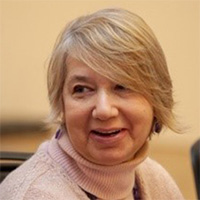
Tatiana Martsinkovskaya
Psychological Institute, Russian FederationPresentation Title:
Digital space of social networks: the new everyday life
Abstract
The problem of digital everyday life is new to the psychology, so it is important to explore the factors which influence the personal selection of the main social network. Our results showed that the majority of respondents use one modality for perceiving and processing information. Each network has differences between users by age and gender. Regardless the preferred network was shown the priority of entertainment content and digital modality of information’s perception. The preference of the network is connected with such personal qualities as Social self-esteem, Social courage and Extraversion scales. Users who choose Instagram and Telegram differ significantly from users of Tik Tok, VKontakte and YouTube by these parameters. Instagram and Telegram users are more socially active, more consciously build their digital space of everyday life in comparison with users of video hosting and, especially, with users of the VKontakte network. Our data showed that there is a relationship between the time spent on social networks and the Openness and Social Self-Esteem scales. A very important for clinical psychologists is the fact, that respondents with higher fear scores spend more time on social networks than respondents with low fear scores. This data can be also regarded as important diagnostic indicator. As a diagnostic parameter must be regarded the fact that respondents who spend more time on social networks are more inclined to demonstrate their social status and often have higher rates of perfectionism. This fact must be taken into account both – in communicating and teaching. For Instagram and Telegram uses one of the main priorities is information. Perhaps it is connected with the fact that they have higher level of education than other uses. They are also socially active, adequate and open to communication, ready to engage in dialogue and express their own, sometimes opposing point of view.
Biography
Tatiana Martsinkovskaya has completed her PhD in 1990 at Moscow State University, and 5 years later, in 1995 became professor of psychology, also at Moscow State University. From 1999 till nowadays works at Psychological institute as the director of department, at the same time being the dean of the faculty of general and clinic psychology at Moscow institute of psychoanalysis. The focus of her research interests now is the problem of mental health in digital society. She has over 300 publications that have been cited over 3700 times and her publication H-index is 47. She has several grants and is the editor-in-chief in one journal as well as the member of editorial board of reputed journals

